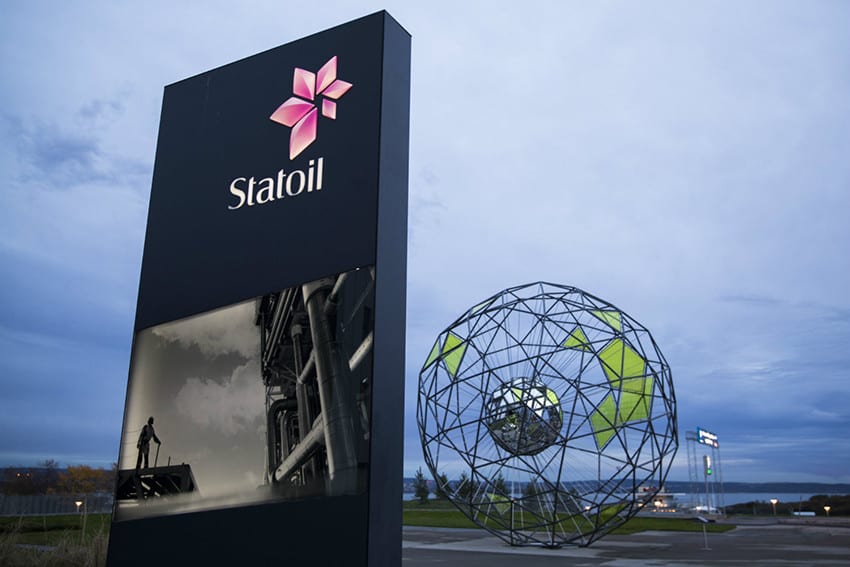Statoil: A Comprehensive Overview of Norway's Energy Giant
 Statoil, now known as Equinor, is a multinational energy company headquartered in Stavanger, Norway. Established in 1972, it has emerged as a global leader in the exploration, production, refining, and distribution of oil, natural gas, and renewable energy sources. With operations spanning across more than 30 countries, Statoil plays a pivotal role in shaping the energy landscape and driving sustainable development worldwide.
Statoil, now known as Equinor, is a multinational energy company headquartered in Stavanger, Norway. Established in 1972, it has emerged as a global leader in the exploration, production, refining, and distribution of oil, natural gas, and renewable energy sources. With operations spanning across more than 30 countries, Statoil plays a pivotal role in shaping the energy landscape and driving sustainable development worldwide.
Origins and Early Years
The roots of Statoil trace back to the discovery of oil and gas reserves in the Norwegian Continental Shelf during the late 1960s. In response to this significant resource potential, the Norwegian government established Statoil as a state-owned company in 1972. Its primary objective was to manage Norway's oil and gas resources in a responsible manner, ensuring long-term economic growth and national prosperity.
During its early years, Statoil focused on developing offshore oil and gas fields in the North Sea, pioneering advanced technologies for exploration and production in harsh environments. The company's commitment to innovation and safety laid the groundwork for its subsequent expansion and success on the global stage.
Global Expansion and Diversification
In addition to conventional oil and gas production, Statoil recognized the importance of renewable energy sources in the transition towards a more sustainable future. The company made significant investments in wind power, solar energy, and carbon capture and storage technologies, demonstrating its commitment to reducing greenhouse gas emissions and combating climate change.
Sustainable Practices and Corporate Responsibility Statoil has been at the forefront of promoting sustainable practices and corporate responsibility within the energy sector. Its ambitious climate goals, including targets for carbon neutrality and renewable energy development, reflect a proactive approach to addressing environmental challenges and promoting energy transition.
Statoil has been at the forefront of promoting sustainable practices and corporate responsibility within the energy sector. Its ambitious climate goals, including targets for carbon neutrality and renewable energy development, reflect a proactive approach to addressing environmental challenges and promoting energy transition.
Furthermore, Statoil has implemented stringent safety protocols and environmental standards across its operations, ensuring the protection of workers, communities, and ecosystems. The company actively engages with stakeholders, including governments, NGOs, and local communities, to foster dialogue, transparency, and accountability in its decision-making processes.
Challenges and Opportunities
Despite its successes, Statoil faces numerous challenges in navigating the complexities of the global energy market. Volatility in oil and gas prices, geopolitical uncertainties, and regulatory changes pose risks to its profitability and long-term sustainability. Moreover, the transition towards renewable energy sources requires significant investments in research, development, and infrastructure, presenting both challenges and opportunities for the company.
However, Statoil remains well-positioned to capitalize on emerging trends and opportunities in the energy sector. Its diversified portfolio, technological expertise, and commitment to innovation provide a solid foundation for future growth and resilience in a rapidly evolving landscape.
Future Outlook As Statoil continues to evolve, it remains committed to its core values of safety, sustainability, and innovation. The company's strategic focus on low-carbon energy solutions, digitalization, and operational efficiency will drive its success in the years to come. By leveraging its strengths and embracing emerging opportunities, Statoil is poised to remain a global leader in the energy industry, contributing to economic prosperity, environmental stewardship, and social progress worldwide.
As Statoil continues to evolve, it remains committed to its core values of safety, sustainability, and innovation. The company's strategic focus on low-carbon energy solutions, digitalization, and operational efficiency will drive its success in the years to come. By leveraging its strengths and embracing emerging opportunities, Statoil is poised to remain a global leader in the energy industry, contributing to economic prosperity, environmental stewardship, and social progress worldwide.
Statoil's journey from a national oil company to a global energy giant is a testament to its vision, resilience, and adaptability. With a legacy of innovation, sustainability, and responsible leadership, Statoil continues to shape the future of energy, driving progress towards a more sustainable and equitable world.
Investment in Innovation One of Statoil's key strategies for maintaining its competitive edge is its significant investment in innovation. The company allocates substantial resources to research and development, seeking to enhance operational efficiency, reduce environmental impact, and unlock new energy sources. Through partnerships with academic institutions, research organizations, and technology startups, Statoil fosters a culture of innovation and collaboration, driving advancements in areas such as offshore drilling techniques, renewable energy technologies, and digitalization.
One of Statoil's key strategies for maintaining its competitive edge is its significant investment in innovation. The company allocates substantial resources to research and development, seeking to enhance operational efficiency, reduce environmental impact, and unlock new energy sources. Through partnerships with academic institutions, research organizations, and technology startups, Statoil fosters a culture of innovation and collaboration, driving advancements in areas such as offshore drilling techniques, renewable energy technologies, and digitalization.
Digital Transformation
In recent years, Statoil has embarked on a digital transformation journey to harness the power of data and technology in optimizing its operations and decision-making processes. By leveraging advanced analytics, artificial intelligence, and automation, the company aims to improve asset performance, predict maintenance needs, and enhance safety across its operations. Digitalization not only increases efficiency and productivity but also enables Statoil to better manage risks, reduce costs, and drive continuous improvement in its operations.
Renewable Energy Ventures Recognizing the growing importance of renewable energy sources in the global energy transition, Statoil has made significant investments in wind, solar, and other renewable technologies. The company's offshore wind projects, such as the Hywind floating wind farm off the coast of Scotland, demonstrate its commitment to scaling up renewable energy production and reducing its carbon footprint. Statoil's expertise in offshore operations positions it as a leader in the emerging market for offshore wind, offering opportunities for growth and diversification beyond traditional fossil fuels.
Recognizing the growing importance of renewable energy sources in the global energy transition, Statoil has made significant investments in wind, solar, and other renewable technologies. The company's offshore wind projects, such as the Hywind floating wind farm off the coast of Scotland, demonstrate its commitment to scaling up renewable energy production and reducing its carbon footprint. Statoil's expertise in offshore operations positions it as a leader in the emerging market for offshore wind, offering opportunities for growth and diversification beyond traditional fossil fuels.
Global Leadership in Sustainability Statoil is committed to integrating sustainability principles into all aspects of its business, from environmental stewardship and social responsibility to ethical governance and transparency. The company's sustainability agenda encompasses initiatives to minimize greenhouse gas emissions, promote biodiversity conservation, and support local communities in areas where it operates. Statoil's leadership in sustainability has been recognized by various industry benchmarks and indices, underscoring its commitment to responsible business practices and long-term value creation.
Statoil is committed to integrating sustainability principles into all aspects of its business, from environmental stewardship and social responsibility to ethical governance and transparency. The company's sustainability agenda encompasses initiatives to minimize greenhouse gas emissions, promote biodiversity conservation, and support local communities in areas where it operates. Statoil's leadership in sustainability has been recognized by various industry benchmarks and indices, underscoring its commitment to responsible business practices and long-term value creation.
Conclusion In conclusion, Statoil's evolution from a national oil company to a global energy leader reflects its ability to adapt to changing market dynamics, technological advancements, and societal expectations. By embracing innovation, digitalization, and renewable energy, Statoil is positioning itself for sustainable growth and resilience in an increasingly complex and dynamic energy landscape. As the world transitions towards a low-carbon future, Statoil's continued leadership and commitment to sustainability will play a crucial role in shaping the future of energy and driving positive change for generations to come.
In conclusion, Statoil's evolution from a national oil company to a global energy leader reflects its ability to adapt to changing market dynamics, technological advancements, and societal expectations. By embracing innovation, digitalization, and renewable energy, Statoil is positioning itself for sustainable growth and resilience in an increasingly complex and dynamic energy landscape. As the world transitions towards a low-carbon future, Statoil's continued leadership and commitment to sustainability will play a crucial role in shaping the future of energy and driving positive change for generations to come.


































